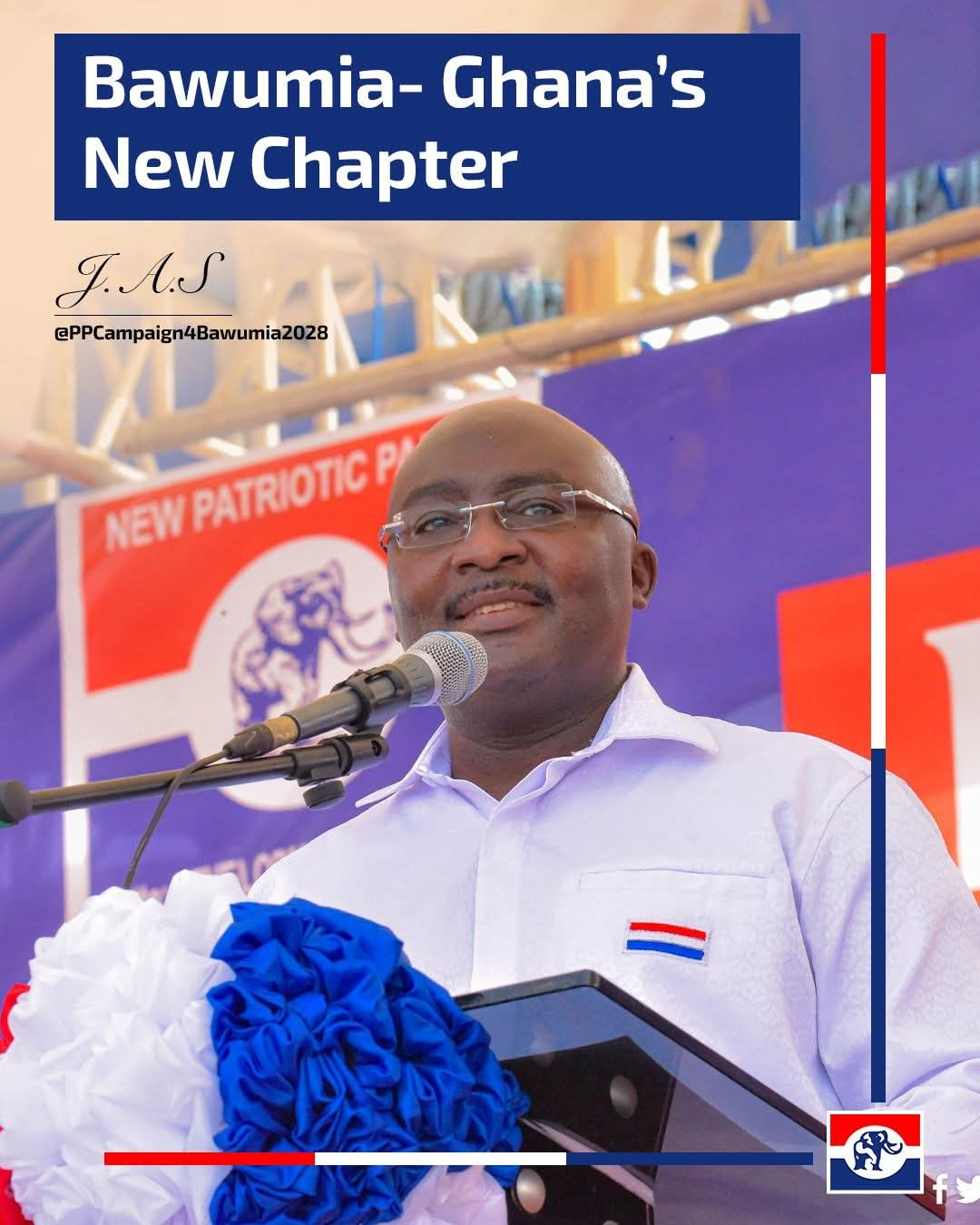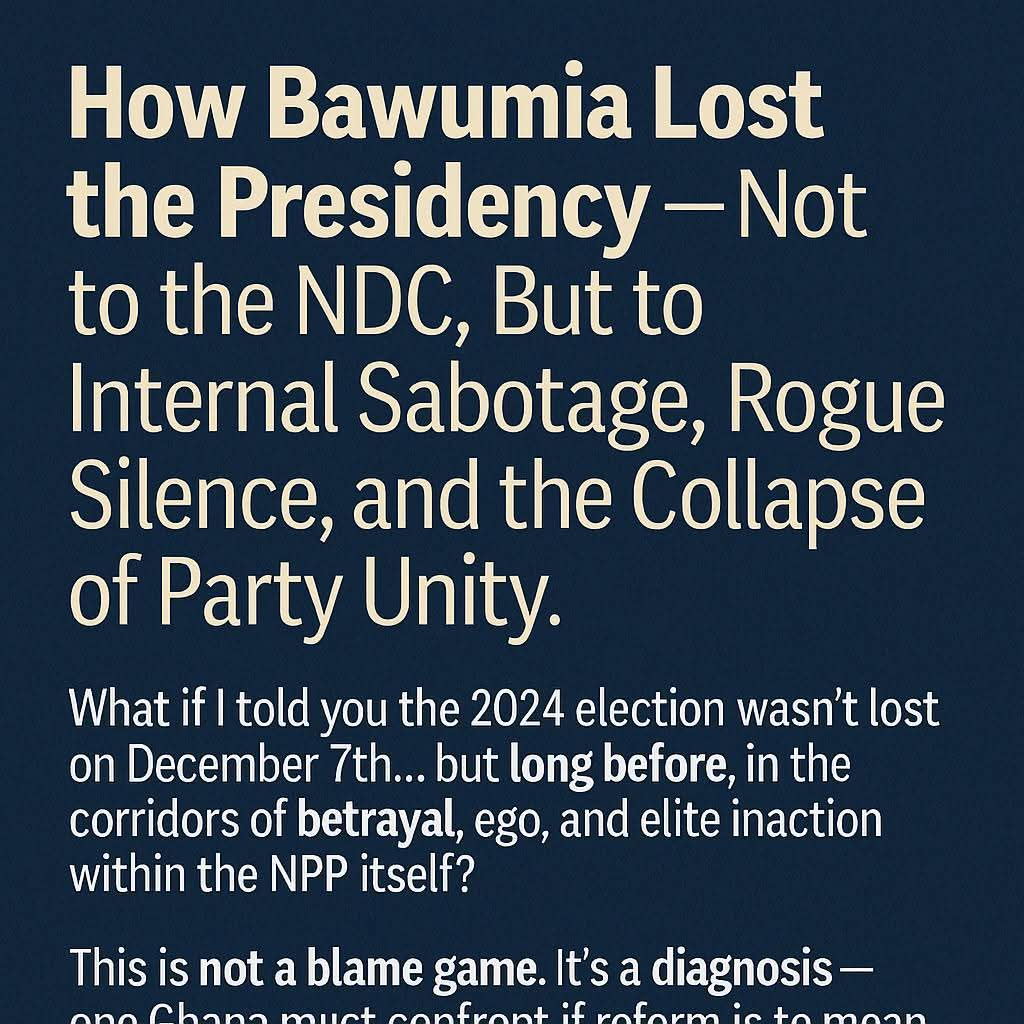In politics, greed and self-serving ambition can blind a man into setting fire to his own house, oblivious to the destruction he causes. If this were not our living reality, no one in the NPP would dare attempt to tarnish Dr. Mahamudu Bawumia for personal gain.
In the history of Ghanaian politics, very few leaders have made the long, disciplined journey from technocrat to national figure with the quiet composure, sharp intellect, and unshakable discipline of Dr. Mahamudu Bawumia.
Handpicked by President John Agyekum Kuffuor’s talent radar and later refined under President Nana Addo Dankwa Akufo-Addo, Bawumia rose from the precision-driven world of central banking into the bruising arena of politics. It was not an accident; it was a deliberate investment in a man seen as both the party’s future and the nation’s bridge to modernisation.
As Vice President from 2017 to January 7, 2025, Bawumia steered the government’s economic reforms and digital transformation agenda, building the systems that are now redefining how Ghanaians access banking, identity, and public services. He earned both praise and criticism but never invisibility. Bawumia achieved these signature legacy wins in a subordinate role without executive authority
In 2024, he made his first bid for the presidency. It was a baptism of political fire. He lost. For many, that loss would have been the last chapter. For Bawumia, it was only the end of Part One.
Now, as a former Vice President and first-time failed presidential candidate, he is lacing up again — this time to secure the NPP’s flagbearer slot for the 2028 elections. He knows the stakes: the NPP must present a candidate who can unite the party, defend its record, and win the trust of undecided voters in a changing Ghana. And in these high metrics at stake, only Bawumia ticked all.
The NPP has always believed in grooming leaders for the long game. Kuffuor came with Busia’s political apprenticeship behind him, and in turn nurtured Akufo-Addo. Akufo-Addo trusted Bawumia. These are not coincidences; they are the deliberate markers of a political tradition that values succession, stability, and vision.
Bawumia is the next bridge in that chain — the leader who can connect Ghana’s economic modernisation with its political renewal, while holding together the delicate coalition of party loyalists, swing voters, and first-time young voters who will decide 2028.
If greed and factionalism step aside, 2028 could be his second-time-lucky moment, and Ghana’s chance to prove that political vision, is the truest measure of leadership.
And if, in the worst-case scenario, he fails to win the second-time-lucky polls in 2028, due to the convergence of an eight-year political cycle, voter psychology, and unresolved wounds from the 2026 primaries; we will stand by him again in 2032. Because at the end of the day, Bawumia remains the best man standing in the NPP.
J. A. Sarbah | PP Strategist.CL |Civic Advocate


